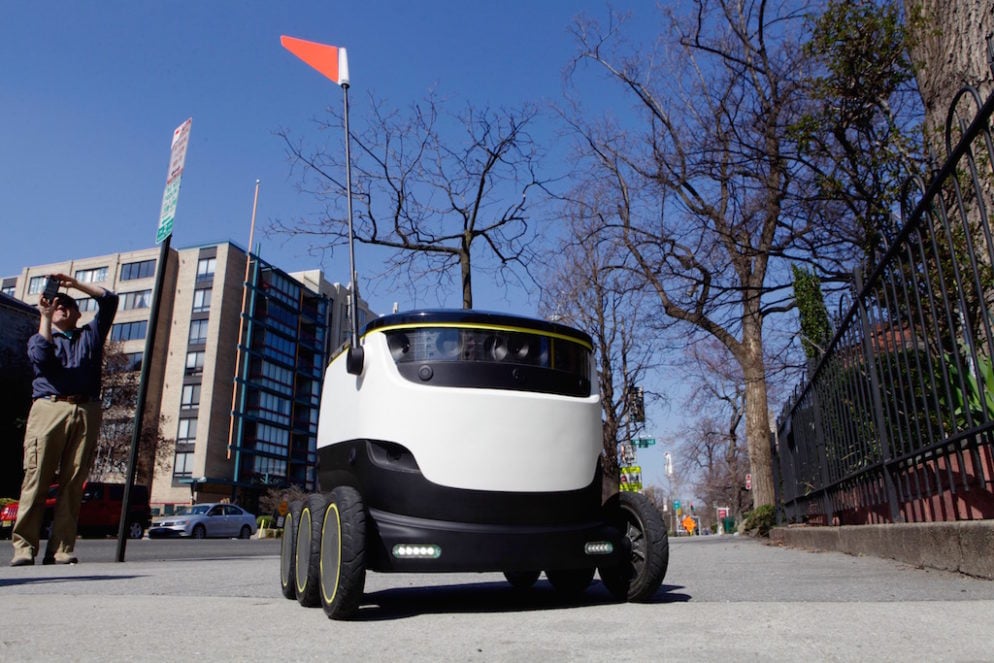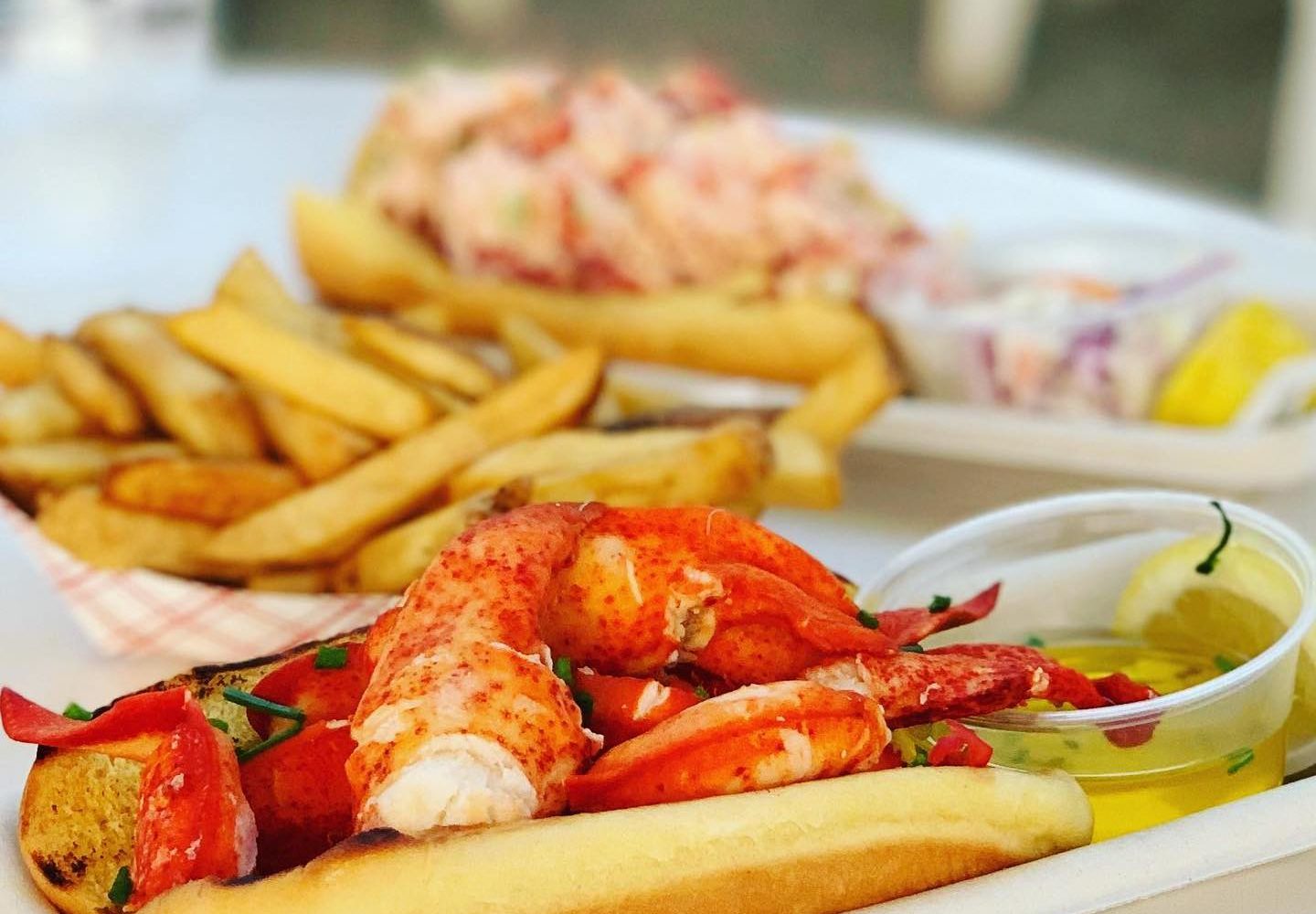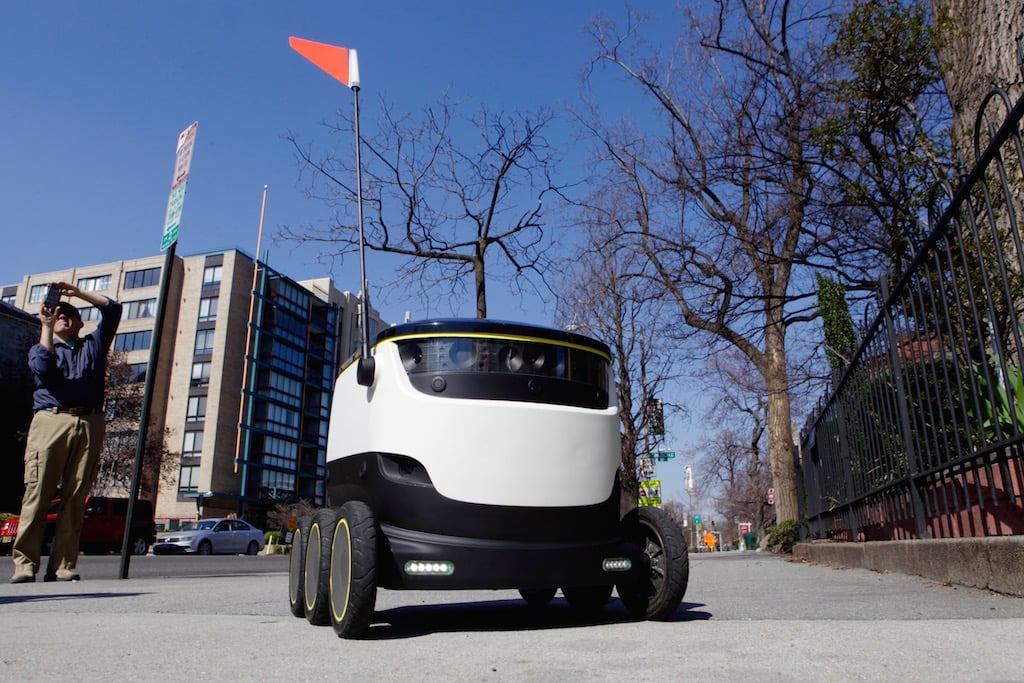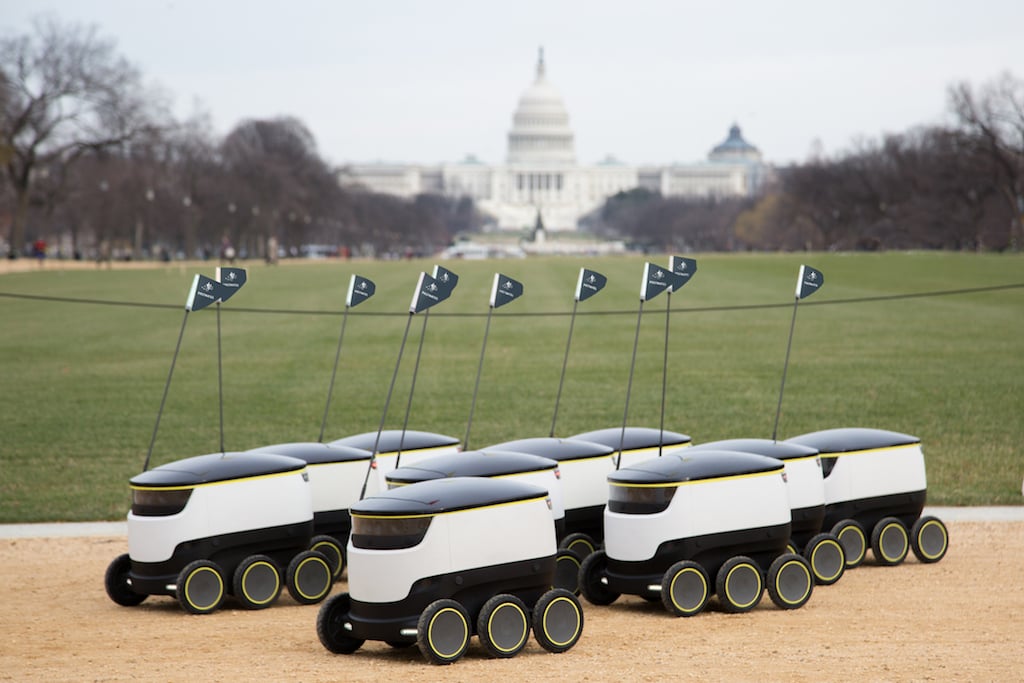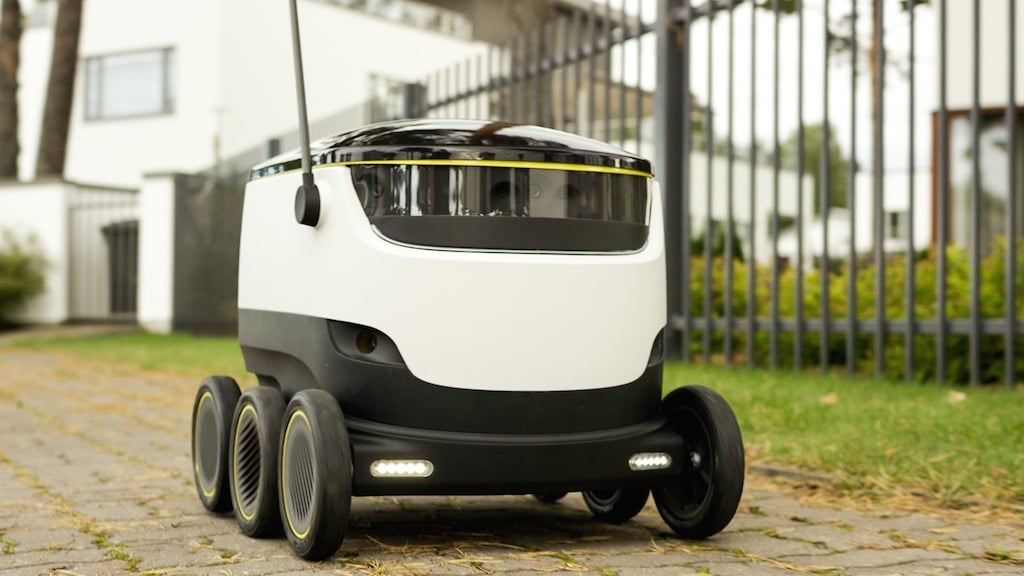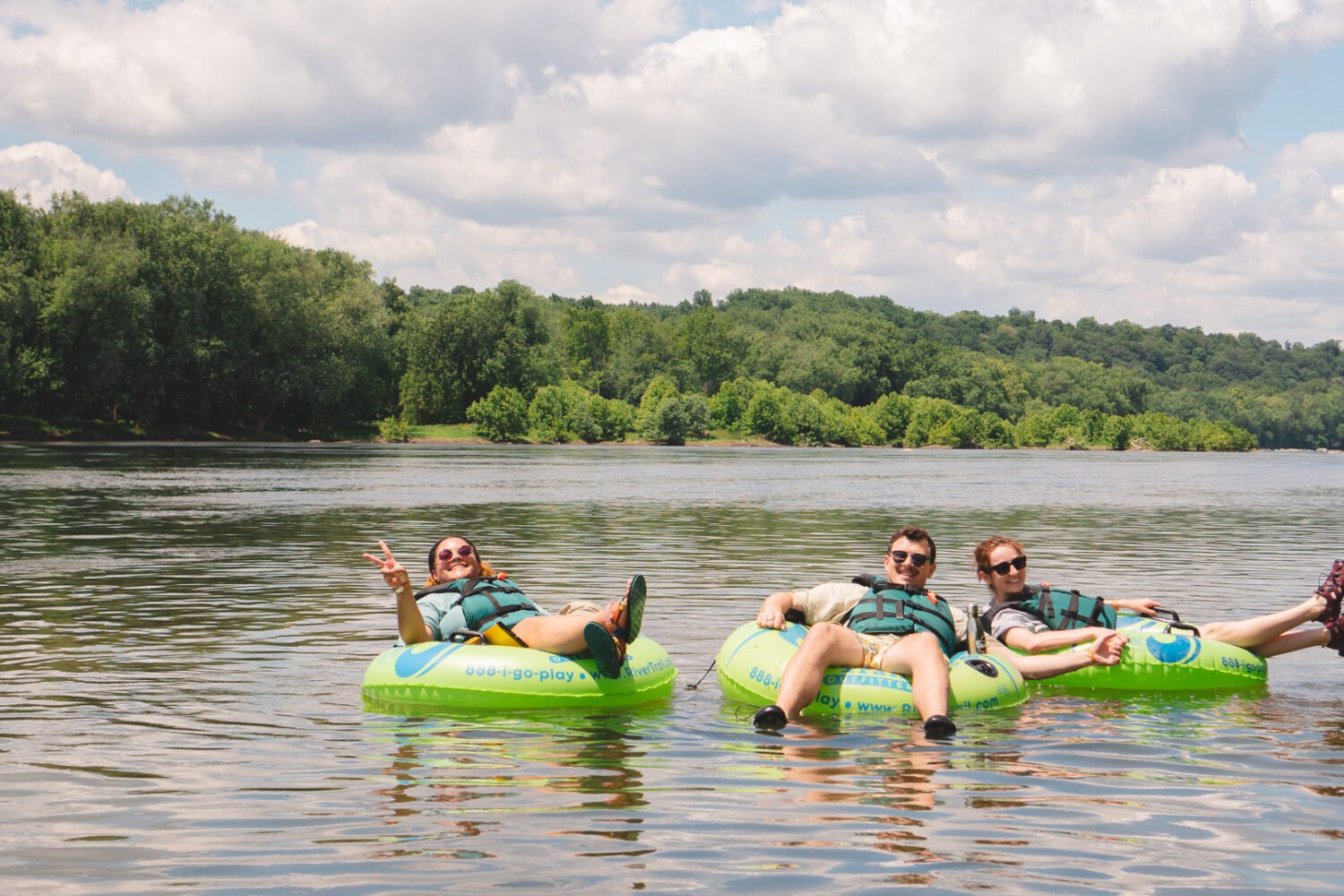The DC Council has officially signed off on the robot invasion. After approving a pilot program for delivery bots in 2016, District lawmakers have now passed permanent legislation that will allow more wannabe Wall-Es to roam more freely.
Starship Enterprises, started by two founders of Skype, was the first company to take advantage of the pilot program. When they launched their high-tech coolers-on-wheels in March of 2017, they were limited to five robots at a time in four zip codes, excluding the “central business district.” The new legislation removes those restrictions.
Over the past year, Starship has teamed up with Postmates and DoorDash, so that when you order something through those apps, a robot might show up at your door. As part of its US and European expansion, however, Starship is focusing on college and corporate campuses that it can serve with its own app and its own direct partnerships with grocery stores and retailers.
Starship’s U.S. Head of Public Affairs (and former DC councilmember) David Catania says it’s “very, very likely” that they will adopt a campus model in DC. They’ve already started to have conversations with potential partners.
DC doesn’t have corporate campuses like Intuit in Mountain View, California (which already has the delivery robots), but Catania says there could be other communities well-suited for the technology. He points to the neighborhood surrounding Broad Branch Market in upper Northwest as a hypothetical example. “You have a hub grocery store that does serve as the go-to place for that community, and this could be adding a complementary service to that particularly establishment,” he says.
Starship has also tested a number of models beyond just delivering your lunch. Catania says the company is very interested in using the bots to get groceries to food deserts. Last year, it also worked with Johns Hopkins Medicine at Sibley Memorial Hospital to deliver medical supplies to recently discharged patients.
Starship hasn’t yet determined exactly how many delivery robots it will add to DC, but Catania says it will likely be “tens of more, not hundreds of more.” DC also serves as the North American operations center for Starship. Over the next year, the company plans to double its 40 employees.
If you’ve ever seen one of the robots around town, you’ve likely also noticed handlers tagging alongside. Catania says the handlers aren’t actually controlling the robots, but rather monitoring new software and hardware. Although the robots may not look like they’ve changed much since they launched more than a year ago, Starship is constantly tweaking the technology. The goal is to eventually make the robots completely autonomous, with help from remote operators when necessary.
The legislation passed by the DC Council still needs a signature from the Mayor Muriel Bowser and a 30-day Congressional review period before the delivery robot expansion can begin. Catania says they’ll begin discussions with the DC Department of Transportation, which regulates the robots, this summer, so that they can get started as soon as the law goes into effect.
The DC legislation passed in 2016 has already had an impact outside the city. It’s turned out to be the basis for similar laws around the country and world. “The Estonian government incorporated a good portion of what was in the District statute,” Catania says. “We have six state laws that have been passed since February of last year, and a seventh that’s sitting on the governor’s desk in Arizona, that all have their genesis in this District statute.”

